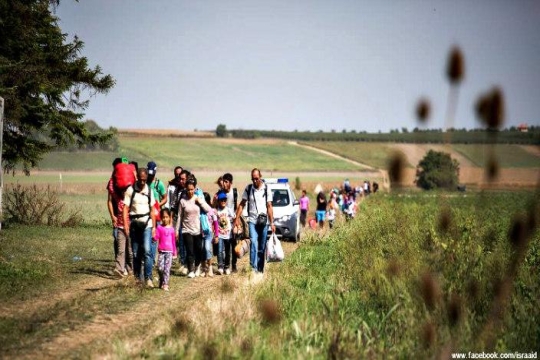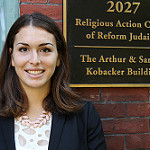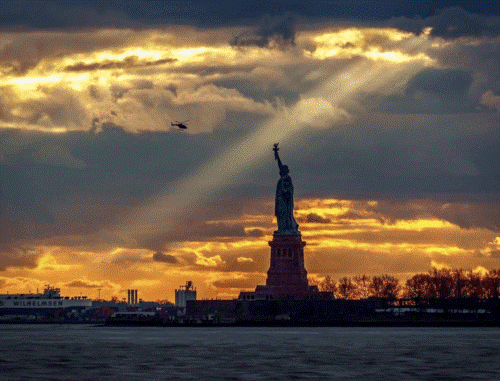
This Shabbat, we will read Parashat Mishpatim, the sixth parshah in the book of Exodus. In Mishpatim, the Israelites have begun what will be 40 years of wandering through the desert after the Exodus from Egypt. This parshah is notable for the number of mitzvot it includes: 53 total, the second most of any parshah.
These mitzvot include rights and protections for a variety of vulnerable people, yet it gives a special double mention to the rights of the stranger. Twice in the parsha we read, “You shall not oppress a stranger, for you know the feelings of the stranger, since you were strangers in the land of Egypt,” (Exodus 22:20; 23:9). This injunction is the most oft repeated in the Torah, repeated 36 times throughout.
After receiving these 53 of God’s commandments, the Israelites respond, “all the words that the Lord has spoken we will do,” (Exodus 24:3). It is remarkable and bears special emphasis to note that the Israelites accepted these commandments without hesitation. They left the only home they have ever known, and even though that home was a land of suffering and servitude, there was much uncertainty about what lay ahead for the Israelites. Their faith and their perseverance is notable, even remarkable. Despite everything they have endured, they know that eventually they will reach the Promised Land.
In an earlier parsha (Shemot) while the Israelites are still enslaved in Egypt, God tells Moses that after the Israelites are freed from oppression, God will shepherd them “to a good and spacious land, to a land flowing with milk and honey,” (Exodus 3:8). Fortified by dreams of the Promised Land, they are heartened in their suffering, both in slavery and in exile, and trust in God’s promise.
The narrative of the Exodus from Egypt, and the timing of this particular parsha remind us that for the 65 million displaced people around the world today who have fled persecution, there is no such promised land. As the Syrian Civil War rages on in its sixth year, there are now almost five million Syrian refugees, the most from any single country. Just as the Israelites wandered long enough for an entirely new generation of people to come about before entering the Promised Land, more than 308,000 Syrian children have been born to refugees since 2011. Many parents are unable to register their newborns in Syria or their host country, leaving their children stateless, with no legal claim to citizenship. Given their stateless status, these children may not be able to return with their families to Syria even if conditions in the country improve.
While the Israelites looked forward to finding a home in their Promised Land, hopes are significantly dashed for modern-day people leaving desperate circumstances and seeking a new home. Despite promises and protections laid out for refugees in the 1951 UN Convention Relating to the Status of Refugees, and the words of welcome enshrined on the Statue of Liberty, anti-refugee rhetoric and policies threaten hopes for refugees seeking a new home in the United States.
Even in the face of obstacles, we are obligated – both because we accepted God’s commandment to welcome the stranger and because we faced challenges on our journey to the Promised Land – to continue fighting to welcome the stranger. Our historical legacy compels us to guide the oppressed to refuge.
To learn more about the RAC’s refugee work, check out our issue page. You can also take action, and oppose the unjust refugee ban that targets individuals on the basis of faith and national origin. If your U.S. synagogue is interested in partnering with a Reform synagogue in Canada to sponsor a refugee family, please contact Shelby Friedman for more information.
Related Posts
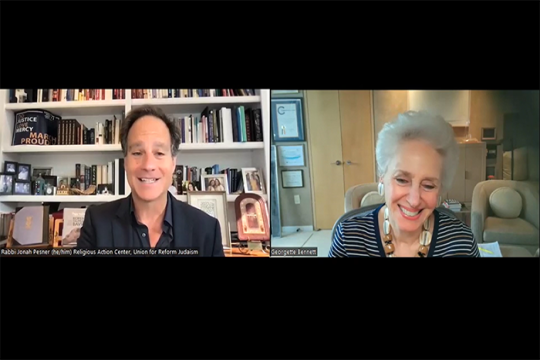
World Refugee Day 2023
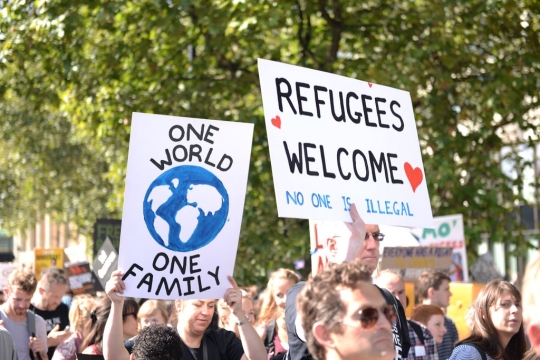
World Refugee Day 2022
